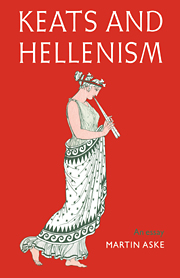1 - Fictions old and new
Published online by Cambridge University Press: 14 September 2009
Summary
I should like to begin with a few general observations.
In his essay, ‘Of the Rise and Progress of the Arts and Sciences’ (1742), David Hume remarked that when the arts ‘come to perfection in any state, from that moment they naturally, or rather necessarily decline, and seldom or never revive in that nation, where they formerly flourished’.
A few years later, Joseph Warton came to the conclusion that ‘in no polished nation, after criticism has been much studied, and the rules of writing established, has any very extraordinary work appeared’.
Such comments might appear to be abstract formulations. In fact they are critically relevant to the time in which they were expressed. They are, one might say, theoretical symptoms of a tendency that was to become increasingly marked as the Enlightenment approached the threshold of Romanticism. As an age of criticism which was also heir to a formidable tradition of literature, the second half of the eighteenth century seemed to confirm the aperçus of Hume and Warton, insofar as it came to witness a decline in the art of poetry.
This was no eccentric suspicion : by the end of the century it had become accepted as a real fact of literary life. A reviewer for one of the leading journals lamented that poetry ‘is almost extinct among us’. The editors of another journal found it necessary to draw attention to ‘the extraordinary circumstances of the time, unfavourable, from various conspiring causes, to literary efforts’.
- Type
- Chapter
- Information
- Keats and HellenismAn Essay, pp. 8 - 37Publisher: Cambridge University PressPrint publication year: 1985

